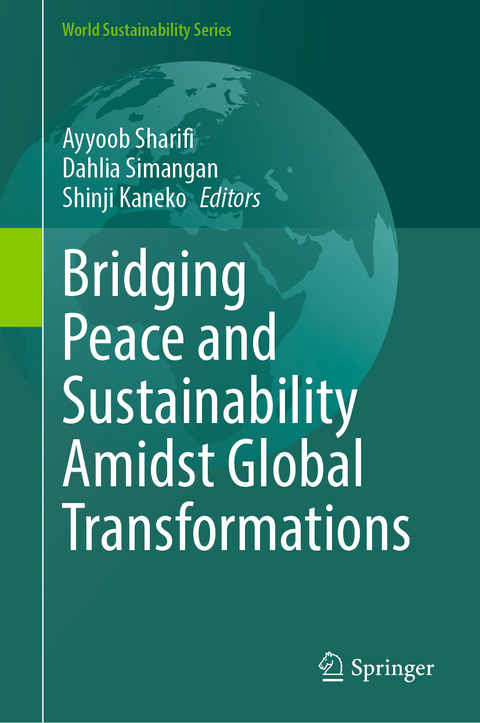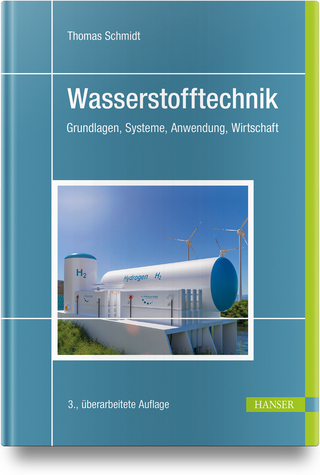
Bridging Peace and Sustainability Amidst Global Transformations
Springer Verlag, Singapore
978-981-99-7571-6 (ISBN)
Ayyoob Sharifi is a professor at the IDEC Institute, Hiroshima University. He also is a core member of the Network for Education and Research on Peace and Sustainability (NERPS). His research is mainly focused on climate change mitigation and adaptation. Ayyoob actively contributes to global change research programs such as the Future Earth and has served as a lead author for the Sixth Assessment Report (AR6) of the Intergovernmental Panel on Climate Change (IPCC). The ultimate goal of his education and research activities is to inform actions toward building sustainable and peaceful communities. Dahlia Simangan is an associate professor at Hiroshima University’s Graduate School of Humanities and Social Sciences. She is a former Kanagawa University JSPS postdoctoral research fellow (nominated by the United Nations University-Centre for Policy Research in Tokyo). She obtained her Ph.D. in International, Political and Strategic Studies from the Australian National University,M.A. in International Relations from the International University of Japan, and her B.A. in Sociology from the University of the Philippines, Diliman. Her research interest in peace and conflict studies includes topics on post-conflict peacebuilding, the peace-sustainability nexus, and international relations in the Anthropocene. Shinji Kaneko is the executive vice president for Global Initiatives and a professor at the Graduate School of Humanities and Social Science at Hiroshima University. He graduated from the School of Engineering at Kyushu University majoring in water engineering (Dr. of Engineering). Immediately after the completion of his doctoral program, he joined the Institute for Global Environmental Strategies (IGES) in 1999 as a researcher and conducted research on urban climate policy in Asian megacities for three years. He also worked at global Change System for Analysis, Research and Training (START) as a research fellow for three years from 2005. In 2018, he was appointed as the director of Network for Education and Research on Peace and Sustainability (NERPS) at Hiroshima University. He has conducted numerous policy research on natural resources, energy, and the environment in developing countries.
Bridging Peace and Sustainability amidst Global Transformations.- Toward Synergies between Peace and Sustainability: Using Institutional Research Data to Explore the Diversity of Participants in SDG-related Research.- Interactions between SDG 14 (life below water) and SDG 16 (peace, justice, and strong institutions): A review of co-benefits, synergies, conflicts, and trade-offs.- Ecological Education in Islamic Religious Learning Based on Creative Imagination.- Sustainable peacebuilding through a dignity lens: A case study of caste-based discrimination in Nepal.- Bangsamoro Youth in Peacebuilding: Contributions, Opportunities and Challenges.
| Erscheinungsdatum | 27.12.2023 |
|---|---|
| Reihe/Serie | World Sustainability Series |
| Zusatzinfo | 42 Illustrations, color; 12 Illustrations, black and white; XII, 267 p. 54 illus., 42 illus. in color. |
| Verlagsort | Singapore |
| Sprache | englisch |
| Maße | 155 x 235 mm |
| Themenwelt | Naturwissenschaften ► Biologie ► Ökologie / Naturschutz |
| Naturwissenschaften ► Geowissenschaften | |
| Sozialwissenschaften ► Politik / Verwaltung ► Europäische / Internationale Politik | |
| Sozialwissenschaften ► Politik / Verwaltung ► Staat / Verwaltung | |
| Schlagworte | 2030 Agenda for Sustainable Development • Governance • Justice • Peace-sustainability nexus • SDG 16 Peace, Justice and Strong Institutions • sustainability |
| ISBN-10 | 981-99-7571-9 / 9819975719 |
| ISBN-13 | 978-981-99-7571-6 / 9789819975716 |
| Zustand | Neuware |
| Informationen gemäß Produktsicherheitsverordnung (GPSR) | |
| Haben Sie eine Frage zum Produkt? |
aus dem Bereich


